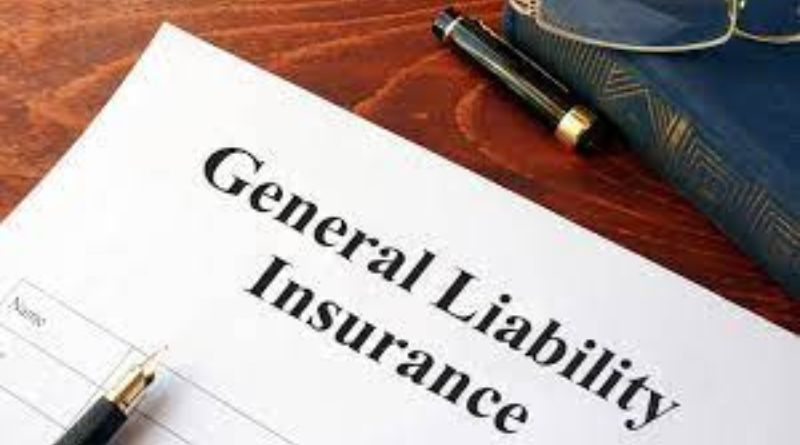Comparing General Liability Insurance and Business Owner’s Policies
General Liability Insurance (GL) and Business Owner’s Policy (BOP) are both coverages that protect your business from various types of risks and liability. Each type of policy has its own pros and cons, so it’s important to consider your particular needs and risk factors before purchasing either one. Read on to learn more about how GL policies differ from BOP policies, as well as how to choose the best insurance policy for your company’s needs.
What Is A General Liability (GL) Insurance?
General Liability insurance is a type of commercial liability policy that protects an individual’s personal assets against lawsuits stemming from their involvement in the business. To put it simply, if you do something as an employee of a company, anything that is negligent or intentional will be held by your employer. If you make a bad decision outside of your job like stepping into a puddle in the dark wearing sandals, which slip on the wet floor causing injury to the customer as he/she was buying groceries, then your own insurance would cover the claim. A GL also extends to any partnerships or shareholders within the business.
The basic idea with this type of insurance is to make sure they have adequate coverage so they are able to move on with their lives in case something unfortunate happens. In contrast, a Business Owner’s Policy offers more extensive protection for owners of small businesses. It covers not only civil lawsuits but also property damage or theft due to natural disasters such as fire, windstorm, and hail storms; product liability including protection for claims filed under warranty; medical payments for employees who were injured at work; loss of income for employees who missed work due to injuries sustained on the job; legal defense costs in connection with accidents at work; crime coverage including robbery or break-in if you’re open 24 hours a day 7 days per week; products / completed operations hazard coverage which covers the risks associated with manufacturing goods through until they’re shipped out. As seen above there are many reasons why one should invest in these types of policies.
The Difference Between A GL & BOP
It is important to differentiate between the two policies. General liability insurance provides protection to the business in the event that someone claims injury or property damage from a situation that was not their fault. It may cover things such as accidents on company premises, product liability lawsuits, accidents caused by third parties while they are working on your property, or any other incidents where you could be found liable for damages. A business owner’s policy covers a more specific list of risks: theft, burglary, and cybercrime are all included in this category of coverage. Coverage will vary depending on the particular policy purchased; some offer more robust coverage than others but all should include these three major areas.
What Does A GL Cover
GL insurance can cover lawsuits stemming from accidents that happen at work, which can include medical expenses for the injured party or lost wages. It can also provide coverage if a coworker sues because of harassment, wrongful termination, discrimination, or another injury that happened on the job. Depending on your state and industry, GL insurance can also provide public liability protection in case someone is hurt as a result of one of your products or services. Lastly, some employers may require their employees to have it in order to comply with safety regulations. Some are different from others but most general liability policies will cover workplace-related injuries up to $1 million for property damage caused by an accident on company premises up to $2 million depending on where you live.
How Does A GL Affect Your Tax Return?
Like most things in life, there are pros and cons. In this case, a GL is not always necessary. But if you want to know if your GL will affect your tax return, then the answer is an absolute yes. As the name implies, a GL protects you from general liability claims. The money paid out of the GL’s policy goes to pay for legal expenses and damages (that an individual or company may have caused) that have occurred at one location or throughout several locations (owned by an individual or company). So when it comes time to file your tax return, you’ll need to account for any money paid out of the GL policy as income on Schedule K-1 of form 1065.
Other Insurances to Consider
Keep in mind that it is a good idea to carry other insurance, like property or equipment coverage. These are important if you need to file a claim for loss or damage. You may also want to consider having a life, disability, and health insurance just in case anything happens. As a business owner, there are many risks you have to protect against. Understanding the different types of insurance available can help you determine what your company needs to be covered. The cost of general liability varies depending on the industry you work in. A typical policy for general liability costs between $500 and $2,000 per year. Compare this cost with the premiums for a Business Owners Policy (BOP), which typically range from about $350-$2,000 per year depending on your business size. Consider whether you will only purchase an individual plan or opt for an umbrella policy. Umbrella policies usually cover claims related to bodily injury, advertising injury, personal injury, product liability, cyber liability and financial responsibility protection among others. Some companies offer combined packages so customers can customize their protection as needed. It is worth looking into all options before making a decision on which type of insurance to buy.






